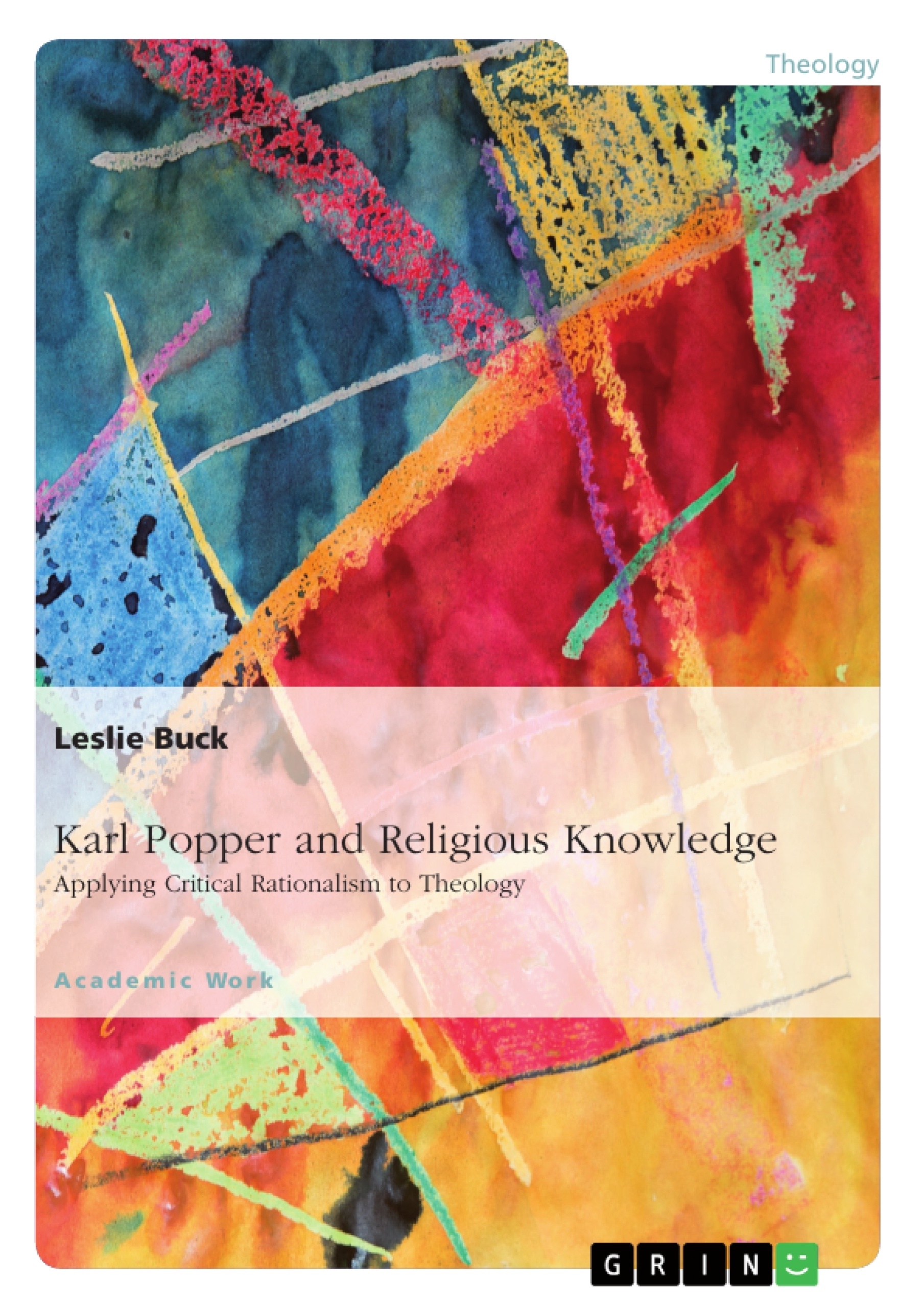The dominance of reductive materialism in contemporary society calls for a new approach to religious epistemology and metaphysics. Traditionally, Christian theology has relied on Greek philosophy to provide its metaphysical grounding, but this is not able to respond adequately to the empiricism that underlies reductive materialism. In these circumstances a new approach is needed, one that can be provided by the epistemology and metaphysics of Karl Popper. Popper’s philosophy, like reductive materialism, is a product of the Enlightenment and can challenge the latter on its own terms.
The case for the new approach is argued, first by describing those aspects of Popper’s philosophy which are relevant to theological discourse, and secondly by discussing how the methodology thus presented can be applied to certain typical theological doctrines. The intention is to propose a new approach to theology, not a new theological system.
By reductive materialism is meant the belief that all phenomena are reducible to bodily entities and the forces that act upon them, leaving no room for mental and transcendental phenomena other than, at best, as epiphenomena or, at worst, as illusions. Reductive materialism is broad in scope ranging from the hard form adopted by many natural scientists to the soft form adopted, by imitation, by people influenced by secularism and the immense success of scientific endeavour.
Inhaltsverzeichnis (Table of Contents)
- Preface
- Chapter 1. Signs and speculations
- Chapter 2. Life in Vienna
- Chapter 3. Searching for knowledge
- Chapter 4. The heart of the matter
Zielsetzung und Themenschwerpunkte (Objectives and Key Themes)
This book aims to apply Karl Popper's philosophy of critical rationalism to the domain of religious knowledge, specifically focusing on the interpretation of theological teachings. It examines how Popper's ideas about the nature of knowledge, the role of conjecture and refutation, and the limitations of empirical verification can illuminate our understanding of religious beliefs.
- The interplay between metaphysical assumptions and the interpretation of religious teachings
- The impact of empiricism and scientific methodology on theological thought
- The role of conjecture and refutation in acquiring knowledge, including religious knowledge
- The limitations of empirical verification in understanding religious experience and beliefs
- The significance of critical rationalism in evaluating and refining theological claims
Zusammenfassung der Kapitel (Chapter Summaries)
- Chapter 1. Signs and speculations: This chapter explores the historical context of how listeners interpret religious teachings based on their metaphysical assumptions. It highlights the shift from a reliance on intuitive thought to a more empirical approach during the Enlightenment, and the subsequent rise of reductive materialism as a dominant metaphysic. This chapter suggests that the shift towards empiricism led to a rejection of transcendental experience.
- Chapter 2. Life in Vienna: This chapter examines Karl Popper's early life and intellectual development within the context of the Vienna Circle, a group known for its logical positivism. The chapter explores the positivists' rejection of unverifiable metaphysical statements and their focus on falsifiable scientific statements. It also points out that even universal scientific statements remain conjectural, as they are not verifiable. The chapter concludes by discussing the role of metaphysical statements, which are both unverifiable and unfalsifiable, but not necessarily meaningless.
- Chapter 3. Searching for knowledge: This chapter delves into the nature of knowledge acquisition. It challenges the idea that knowledge comes solely from passive observation, arguing instead that sensory observation is active and depends on the prior existence of conjectures. The chapter emphasizes the role of conjecture, observation, and refutation in acquiring knowledge, suggesting that we can approach truth without ever reaching it definitively.
- Chapter 4. The heart of the matter: This chapter further elaborates on the process of knowledge acquisition, highlighting the three-fold process of conjecture-formation, observational-testing, and refutation or provisional acceptance. It emphasizes the crucial role of critical testing in the growth of knowledge, asserting that it cannot be replaced by appeals to authority or essentialist claims.
Schlüsselwörter (Keywords)
The main keywords and focus topics of this work include critical rationalism, religious knowledge, theology, metaphysics, empiricism, conjecture, refutation, verification, falsification, essentialism, and the Vienna Circle.
- Quote paper
- Leslie Buck (Author), 2017, Karl Popper and Religious Knowledge, Munich, GRIN Verlag, https://www.grin.com/document/379087



